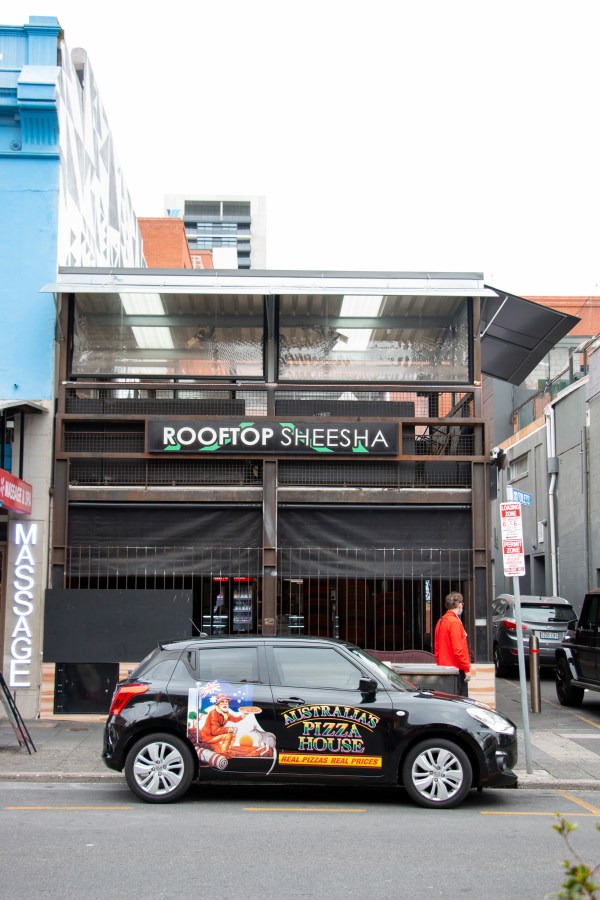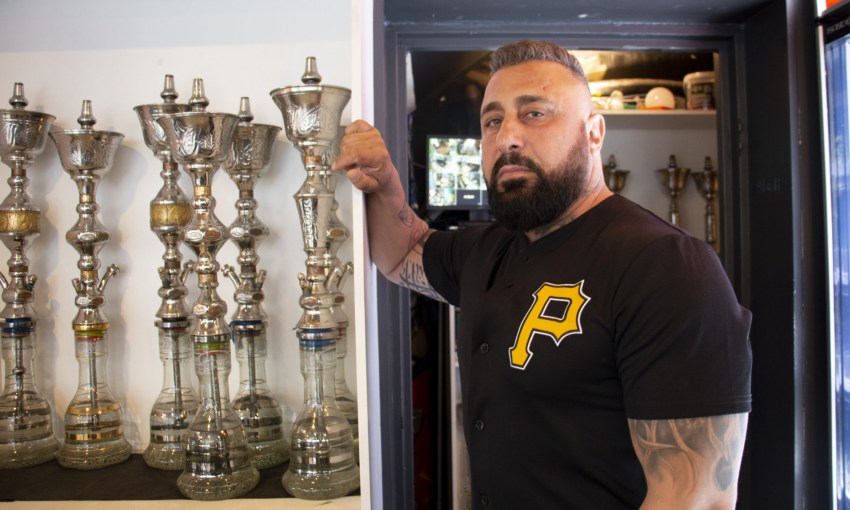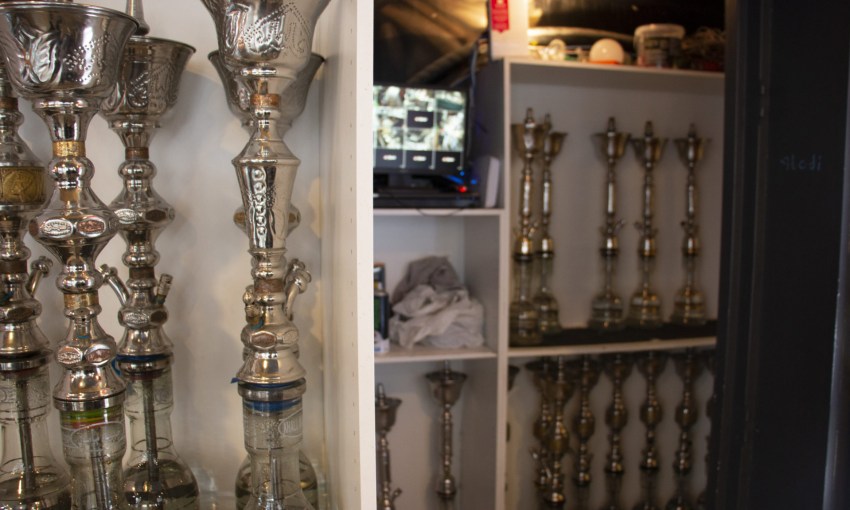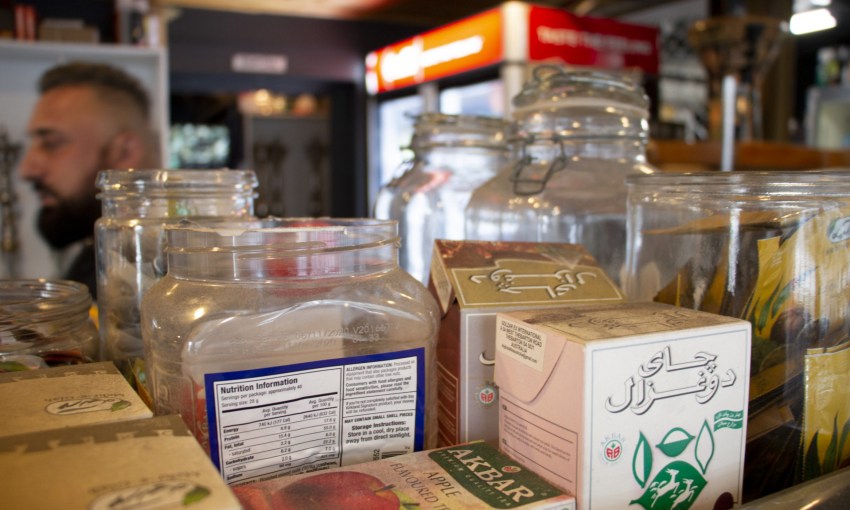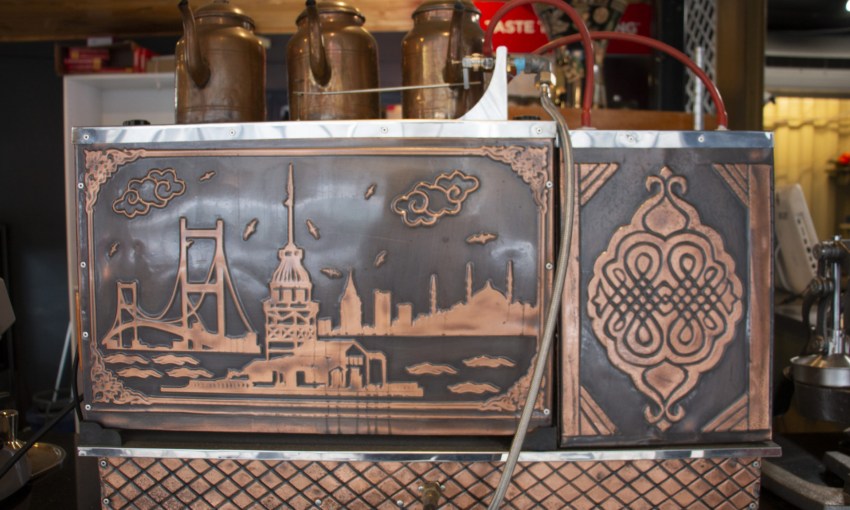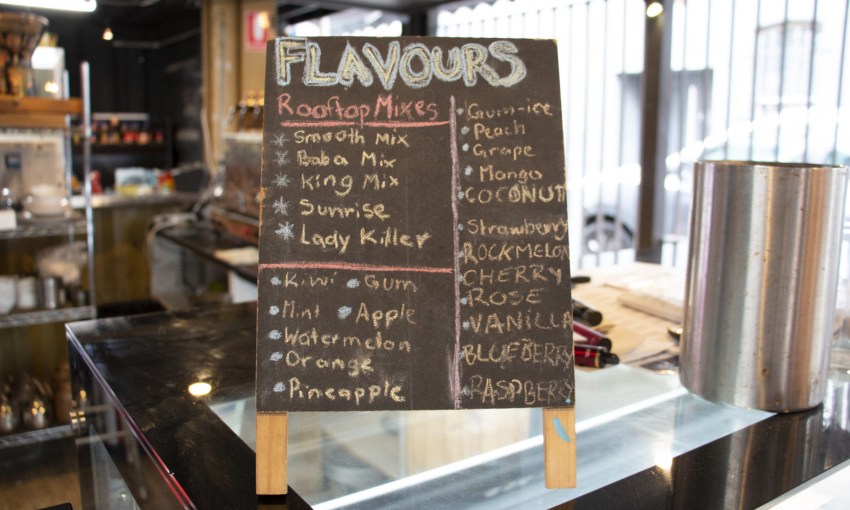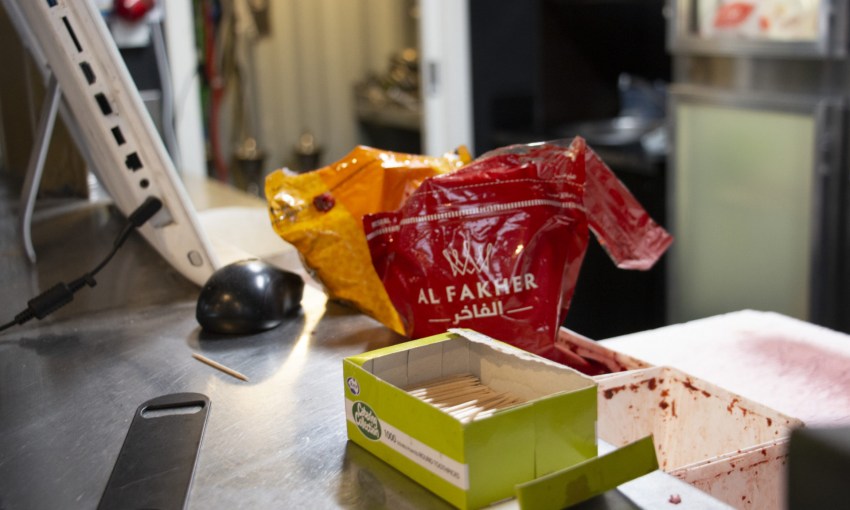Hindley Street hookah lounge owner Ammar Ali believes the COVID-19 shisha ban is "discriminatory" and "racist", and says he and his colleagues in the industry want to return to trade.
Up in smoke: Ammar Ali won’t pipe down over the shisha ban
Speaking from within an empty Rooftop Sheesha, Ammar Ali speaks with CityMag of the continued personal toll of the pandemic.
The business owner is currently taking anti-anxiety tablets to mitigate a recent depression diagnosis.
Rooftop Sheesha is currently closed due to COVID-19 restrictions.
“I’m on the anxiety tablets because no one is listening,” Ammar tells CityMag, as tears well and his voice rises in frustration.
“I can’t do anything. I can’t open the business. It’s discriminatory. I can’t do anything.”
Due to the COVID-19 pandemic, South Australia is currently under level one restrictions.
Under the current raft of rules, such as the more commonly known 75 per cent density cap on seated activities and the ban on dancing and standing-consumption in most circumstances within licensed venues, there is also a total ban on shisha.
We ask for a tour of Ammar’s silent three-storey premises, and he points out the dust building on top of the booths.
In the 19 months since March 2020, Rooftop Sheesha has only had a legal ability to trade for three months.
“When COVID started, they closed us for 13 months,” Ammar says.
“I sent my lawyer [and SA Health] a letter [and] they… renewed the license. After renewing the license they said, ‘You can open now.’ We opened another two months or three months. And then again, first [COVID-19] case, when it came, they said ‘shisha closed’.
“We’ve been closed now for four or five months.”
Unlike many bars within the city, Rooftop Sheesha wasn’t able to pivot its offering to service the growing demand for food and alcohol delivery services. The business has a largely Muslim customer base that mostly abstains from drinking alcohol.
“We don’t have clubs,” explains Ammar, who is also Muslim. “We have entertaining places like this to go to.”
Deputy Chief Public Health Officer Chris Lease told CityMag in a statement, shisha is considered a high-risk activity, similar to a buffet, where shared utensils are a “concern”.
“Sharing any smoking product increases the risk of catching illnesses from other people, including COVID-19,” the statement says.
“Even if you use disposable tips, the other parts of shisha pipes and the nature of their use can spread infection. The inside of a shisha pipe is an ideal environment for microorganisms to thrive in.”
He says restrictions on the use of shisha pipes will be reviewed in the future, subject to a public health risk assessment.
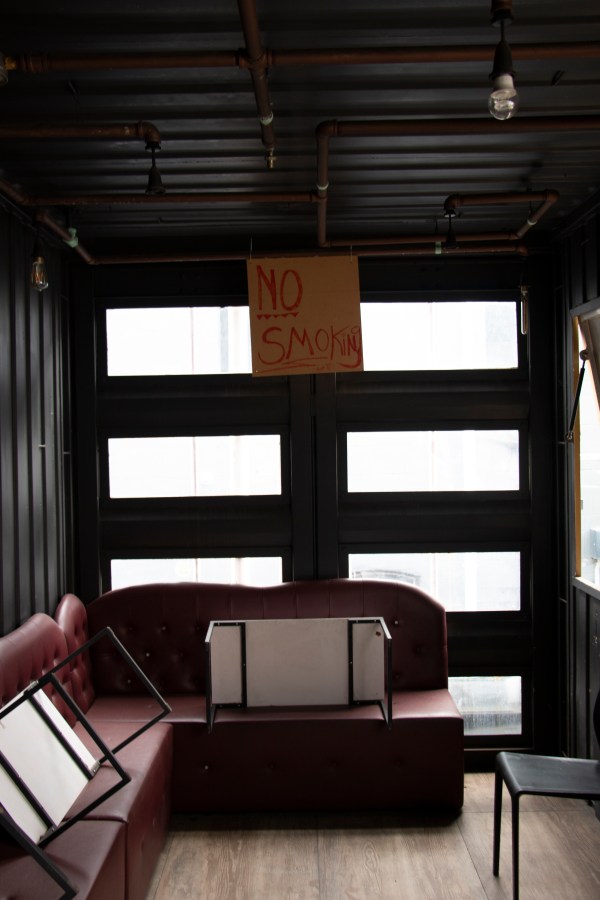
No dancing, no smoking, no standing consumption of alcohol in SA
Ammar says although he’s lost $2m across his two businesses since the pandemic started, he’s received only $50,000 in state and local government grants. He’s also trained COVID-19 marshals and sourced single-use pipes, sanitising stations and disposable hoses for when opening day arrives.
Despite the cost to his business, Ammar says he doesn’t want money, he just wants to be able to trade.
“We’ve got all these,” he says of the disposable hardware he’s sourced. “Why not let us open?
“I found the health department discriminatory and racist”.
CityMag contacted SA Health to respond to Ammar’s claims of discrimination, but they did not respond.
While Rooftop Sheesha’s closure is considered temporary, Ammar says other hookah businesses have not been so lucky. He lists Mazaya Restaurant and Café on Melbourne Street, Al Tarboosh Shisha on Main North Road and Shisha Lounge Sahara on Hindley Street as economic victims of the pandemic.
“We can afford to pay for the closure because I’m a developer and have other restaurants. Otherwise I would be one of them, just bankrupt,” Ammar says.
Google results for the shisha lounges Amar mentioned either say they are “permanently closed” or “temporarily closed”.
When CityMag attempted to call the businesses, an automated message said the numbers were either “not connected” or “could not be connected”.
Considering his future, Ammar says even selling out of the business isn’t a viable option.
“What is that person going to do with it? The shop is dead. You can’t sell it,” he says.
“[SA Health is] not listening to us. We don’t exist for them.”
